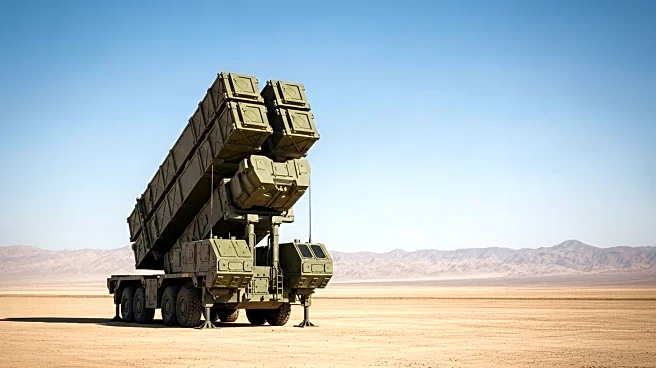What's Happening?
The recent Israeli strike on Hamas leaders in Doha has raised questions about Qatar's advanced U.S.-made air defense systems, including Patriot missile batteries and the THAAD system. Despite these defenses, the strike went undetected, leading to speculation that Israeli warplanes may have used long-range missiles fired from outside Qatari airspace. Qatar's Prime Minister labeled the attack as an Israeli terrorist act and hinted at a diplomatic response. The incident has prompted high-level diplomatic visits to Doha from regional leaders, including the Emirati President and Saudi Crown Prince.
Why It's Important?
The failure of Qatar's air defenses to intercept the Israeli strike highlights potential vulnerabilities in advanced military systems. This incident may prompt Qatar and other Gulf states to reassess their defense capabilities and reliance on foreign military technology. The diplomatic fallout could affect Qatar's role in regional negotiations and its relationship with the U.S. and Israel. The event underscores the geopolitical complexities in the Middle East, where military actions can have far-reaching diplomatic consequences.
What's Next?
Qatar is expected to pursue diplomatic channels to address the strike, including discussions at the UN Security Council. The incident may lead to increased scrutiny of military technology and defense strategies in the region. Qatar's leadership will likely seek assurances from allies to prevent future violations of its sovereignty. The situation could influence future arms deals and military collaborations between Gulf states and Western countries.










